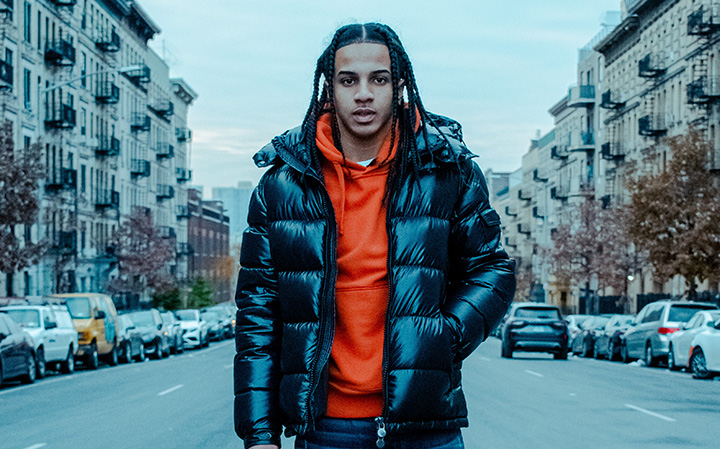
Drill rappers have drawn criticism for their violent lyrics and gang-related topics. But this music has also brought attention to a group of people often ignored.
Drill music relies on slow, trap-music-Esque beats and blunt lyrics that describe the harsh reality of life in impoverished neighborhoods. While some people blame the music for the violence, others argue that it is simply a reflection of reality.
Brooklyn
Drill rap emerged as a way for inner-city youth with gang ambitions to convey their experiences through gun-strewn videos and explicit lyrics delivered over aggressive drum beats. It’s a cocktail that can be combustible and deadly, as evidenced by the many Brooklyn rappers killed over the years.
Despite its dangerous themes, drill has made it into the mainstream. Bobby Shmurda’s “Hot N***a” and Rowdy Rebel’s “Computers,” fueled by horror movie chords, introduced the world to the borough’s sound. Then came a wave of artists from the neighborhood’s rough streets, like Fivio Foreign and Sheff G, who pushed the scene further with their vicious verses, bouncy beats and gloomy ambience.
But in 2019, the city lost one of its most popular rappers to violence: Pop Smoke, a Canarsie native and heir apparent to the Brooklyn drill throne. His death left a void for the community, and it took some time for the new crop of young stars to emerge. Now, a crop of forward-thinking producers and rappers is reimagining the genre’s signature asymmetrical beats and idiosyncratic flows with a smoother R&B sound.
New York
The gang-fueled violence of New York’s streets has been the backdrop for a series of grim hip-hop hits. Drill’s dark tempos (borrowed from Atlanta trap music) and sinister storytelling melded with Brooklyn’s boisterous energy to create a potent, grisly language for a community to talk to itself. It’s a language that has been embraced by hometown heroes Bobby Shmurda and Rowdy Rebel, who used it to propel them into the top 10 of the Billboard Hot 100.
But it’s also a language that has sparked debate over whether the genre is glorifying real-life gun violence or fostering it. As homicide rates climb, mayors like Eric Adams are warning DJs to stop playing drill and calling for social media companies to restrict the music’s shareability.
The scene’s soaring popularity has brought the conflicting pressures of city life to a head. And as young rappers like Pop Smoke and Fivio Foreign notch major-label deals, the New York City public is witnessing them square off against each other on the radio and in music videos, firing diss tracks at one another like gladiators.
Chicago
Drill rap isn’t the most popular genre of hip hop, but it matters a great deal to the rappers who create it. The scene was birthed out of the tragic ways of life that many of these young men and women had to live through inside wildly underserved neighborhoods, and the music’s blunt lyrics offer a cry for help and an unapologetic depiction of their bleak reality.
The style quickly gained popularity in the Chiraq streets thanks to artists like Chief Keef and Lil Durk, as well as producers who crafted dark beats with siren sounds, church bells, and melodies straight out of a Freddy Krueger nightmare. It also gave rise to a whole host of low-budget videos that could be edited and posted instantly on YouTube.
The best Chicago drill rappers are unapologetically raw and captivating, capturing the gruesome realities of street life with their storytelling prowess. G Herbo’s masterful lyricism and narrative skills have earned him critical acclaim and a huge following. And Polo G’s poetic take on the genre offers a fresh perspective to the scene even though he has embraced many of the ominous beats and slow-tempos that are typical of drill music.
Atlanta
Before Chief Keef sparked drill into a global phenomenon, artists from Atlanta had already built the foundations of the subgenre. “Drill music” isn’t quite trap, but the beats often have similar tempos and a similar sound.
The rappers who create it are often from the same neighborhoods as the beats they work over, and their lyrics tend to be gritty, violent, realistic, and nihilistic. They deliver their verses in a deadpan tone, sometimes filtered through Auto-Tune.
New York’s rap scene exploded in the 2020s, fueled by beefs between rival gangs and an onslaught of songs that ratcheted up their tensions. It was the perfect setting for a new breed of hyperlocal rappers, like 22Gz and Sheff G, to emerge and establish NYC as the next drill hotbed.
Despite their success, the artists on these playlists remain grounded in their streets and continue to use abrasive language and inflammatory disses to keep things real. Their music is a glimpse into the gang wars, drug dealing, and gun violence that still define their city’s streets. drill rap radio